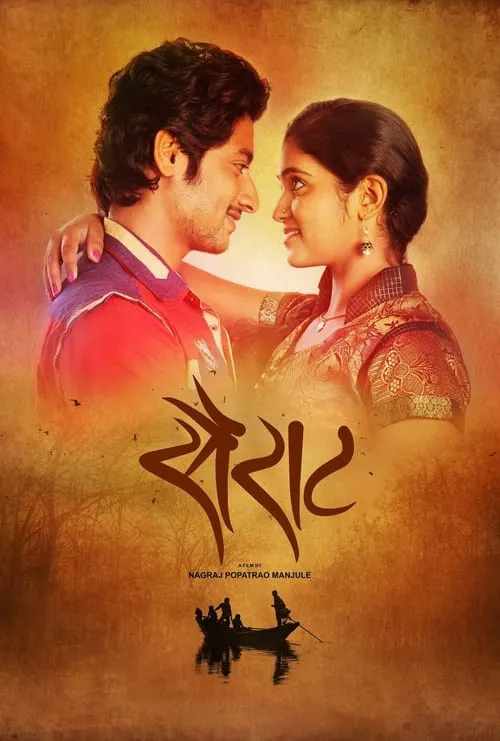Sairat

Plot
Set against the vibrant backdrop of rural Maharashtra, "Sairat" is a poignant and powerful tale of love, casteism, and the consequences of societal expectations. The film, directed by Nagraj Manjule, tells the story of Archi, the beautiful and charming daughter of Chintaresh Narambhkar, a local politician, and Parshya, the rugged and talented son of Keshu Gokhale, a humble fisherman. From the outset, the film establishes the stark class divisions that exist within the small village. Archi, with her polished manners and refined upbringing, represents the privileged upper caste, while Parshya, with his rough-around-the-edges demeanor and modest means, embodies the lower caste. Despite this, the two meet and fall deeply in love, their bond forming across the chasm of societal expectations. As their relationship progresses, the families' animosity towards each other becomes increasingly apparent. Archi's father, determined to maintain his family's honor, sees Parshya as a social inferior, unworthy of his daughter's hand. Similarly, Parshya's family, who live in the shadow of the Narambhkars, view Archi as a symbol of the elitist culture that has oppressed them for generations. The arrival of Parshya at the local college, where Archi studies, marks the beginning of a tentative romance. Initially, they keep their relationship a secret, aware of the potential repercussions of their families' discovery. However, as their love deepens, they become more confident in their feelings for each other. This newfound confidence eventually leads them to publicly declare their love, sparking a chain of events that will alter the course of their lives forever. As Archi and Parshya's relationship becomes more public, tensions between the two families come to a boil. Chintaresh, determined to maintain his family's social standing, sees Parshya as a threat to his daughter's future. He demands that Archi break off her relationship with the lower-caste fisherman, but his daughter refuses, choosing instead to stand by the man she loves. Meanwhile, Parshya's family, too, must grapple with the implications of their son's relationship with Archi. Keshu's sister, who has always been fiercely protective of her brother, struggles to accept the idea of her nephew marrying into the Narambhkar family. Her concerns are not unfounded, as the family's past experiences have left deep scars, and she fears that Parshya will be ostracized or worse if he continues to pursue a relationship with Archi. As the conflict between the two families escalates, it becomes clear that there can be no middle ground. The film's themes of casteism, social inequality, and the suffocating nature of societal expectations are skillfully woven into the narrative, creating a rich tapestry of characters and conflicts. In the midst of this chaos, Parshya's sister, Shrikant, emerges as a powerful symbol of resistance against the entrenched caste system. Her unyielding support for her brother's relationship with Archi serves as a catalyst for change, even as it puts her own family's honor at risk. The film's dramatic turning point comes when Parshya's family is brutally attacked by Chintaresh's goons, who seek to intimidate them into abandoning their relationship. The violence that ensues leaves Parshya gravely injured and sets off a chain of events that will have devastating consequences for both families. In the aftermath of the attack, Archi's world begins to unravel. Confronting the harsh realities of her family's actions, she begins to question the values she was once taught to cherish. Her growing disillusionment with her own family's casteist ideology serves as a powerful commentary on the destructive nature of social inequality. Ultimately, "Sairat" is a heartbreaking tale of love and loss, of the devastating consequences of societal expectations and the suffocating grip of casteism. The film's powerful performances, coupled with its thought-provoking narrative, make for a deeply moving cinematic experience. In the end, it is Parshya, the brave and passionate fisherman's son, who emerges as a powerful symbol of resistance against the entrenched caste system. His love for Archi, despite the overwhelming obstacles that threaten to tear them apart, serves as a beacon of hope in a world that seems determined to crush the marginalized. Through its poignant portrayal of love, loss, and the struggle for social justice, "Sairat" leaves the audience with a lasting impression of the need for change and the importance of standing up against the injustices of the world.
Reviews
Recommendations




